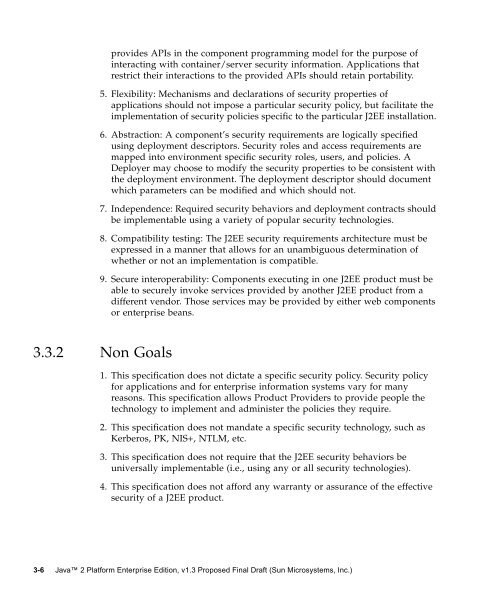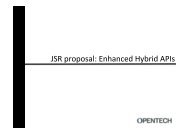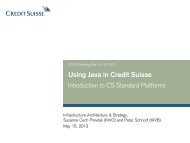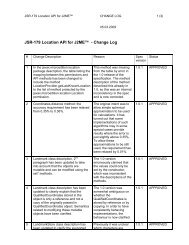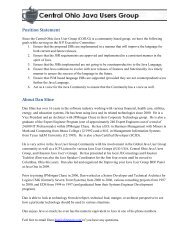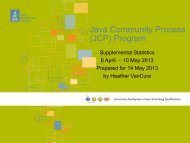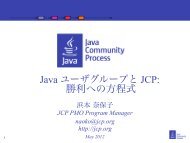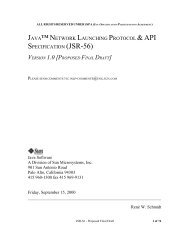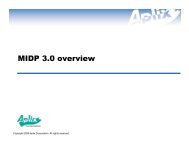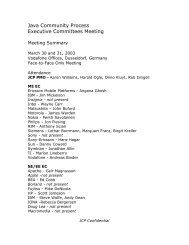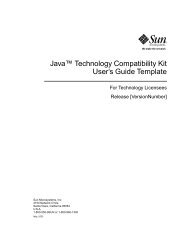JSR-000058 Java TM 2 Platform, Enterprise Edition 1.3 Specification
JSR-000058 Java TM 2 Platform, Enterprise Edition 1.3 Specification
JSR-000058 Java TM 2 Platform, Enterprise Edition 1.3 Specification
Create successful ePaper yourself
Turn your PDF publications into a flip-book with our unique Google optimized e-Paper software.
provides APIs in the component programming model for the purpose of<br />
interacting with container/server security information. Applications that<br />
restrict their interactions to the provided APIs should retain portability.<br />
5. Flexibility: Mechanisms and declarations of security properties of<br />
applications should not impose a particular security policy, but facilitate the<br />
implementation of security policies specific to the particular J2EE installation.<br />
6. Abstraction: A component’s security requirements are logically specified<br />
using deployment descriptors. Security roles and access requirements are<br />
mapped into environment specific security roles, users, and policies. A<br />
Deployer may choose to modify the security properties to be consistent with<br />
the deployment environment. The deployment descriptor should document<br />
which parameters can be modified and which should not.<br />
7. Independence: Required security behaviors and deployment contracts should<br />
be implementable using a variety of popular security technologies.<br />
8. Compatibility testing: The J2EE security requirements architecture must be<br />
expressed in a manner that allows for an unambiguous determination of<br />
whether or not an implementation is compatible.<br />
9. Secure interoperability: Components executing in one J2EE product must be<br />
able to securely invoke services provided by another J2EE product from a<br />
different vendor. Those services may be provided by either web components<br />
or enterprise beans.<br />
3.3.2 Non Goals<br />
1. This specification does not dictate a specific security policy. Security policy<br />
for applications and for enterprise information systems vary for many<br />
reasons. This specification allows Product Providers to provide people the<br />
technology to implement and administer the policies they require.<br />
2. This specification does not mandate a specific security technology, such as<br />
Kerberos, PK, NIS+, NTLM, etc.<br />
3. This specification does not require that the J2EE security behaviors be<br />
universally implementable (i.e., using any or all security technologies).<br />
4. This specification does not afford any warranty or assurance of the effective<br />
security of a J2EE product.<br />
3-6 <strong>Java</strong> 2 <strong>Platform</strong> <strong>Enterprise</strong> <strong>Edition</strong>, v<strong>1.3</strong> Proposed Final Draft (Sun Microsystems, Inc.)


